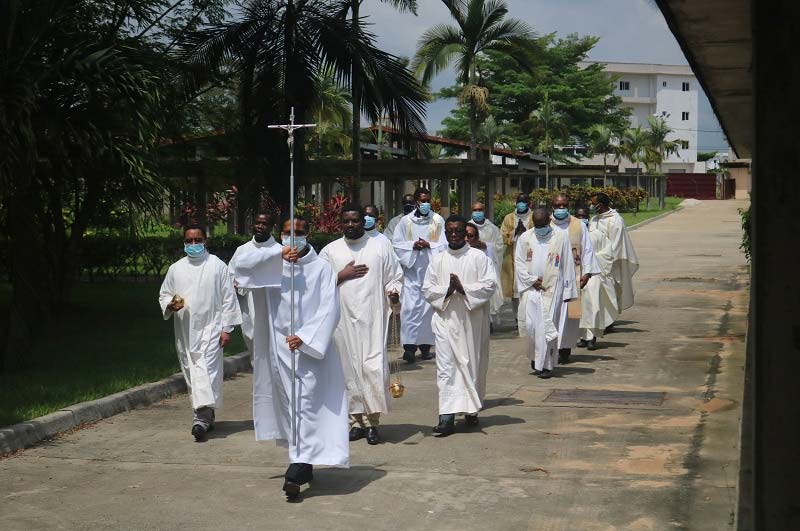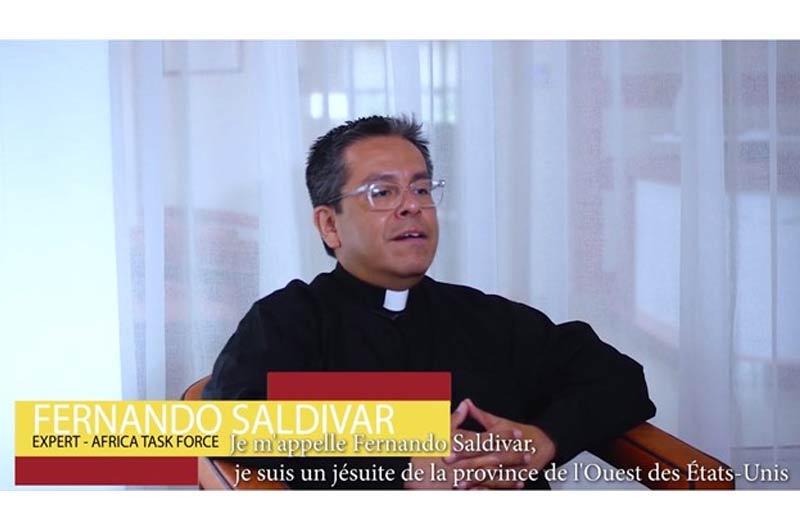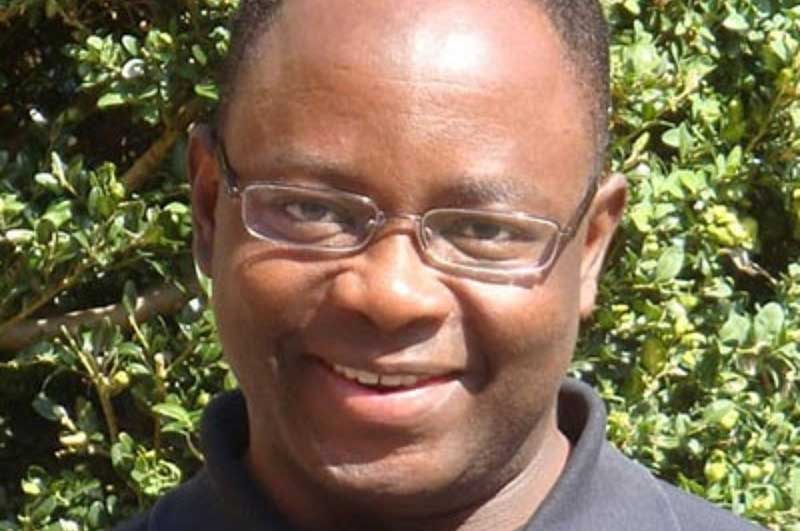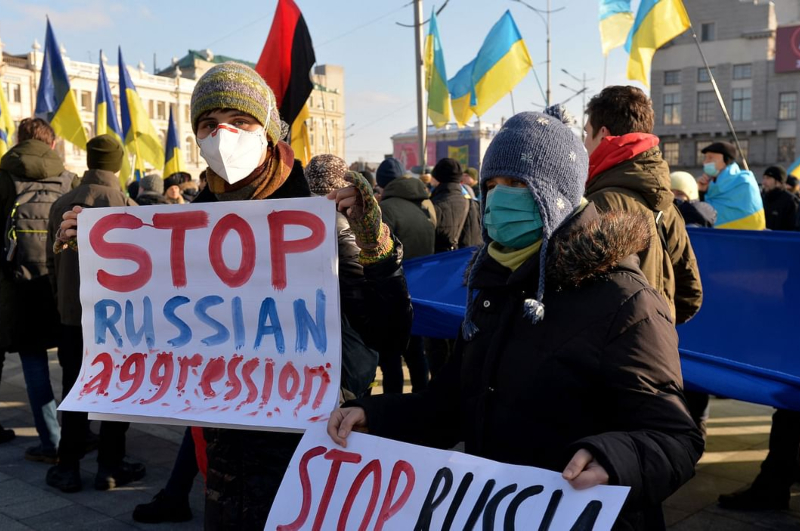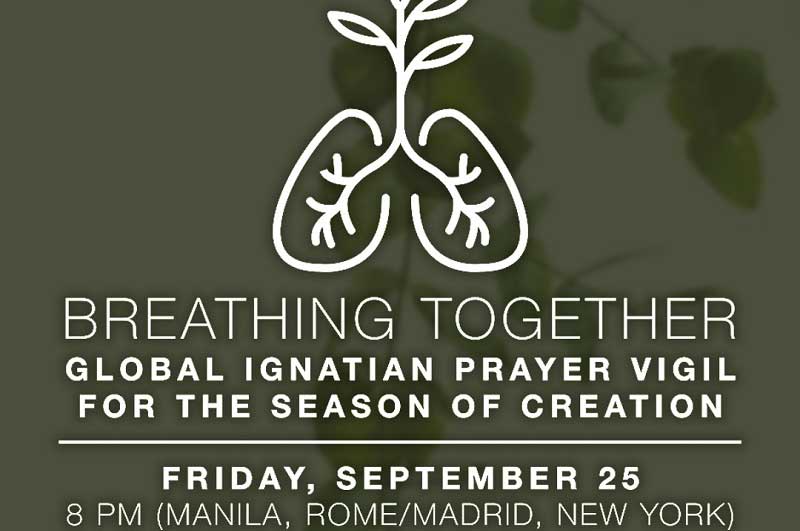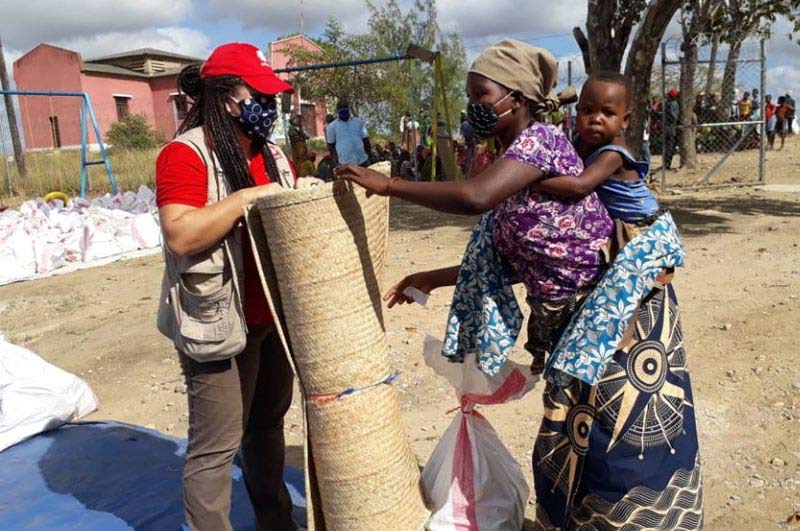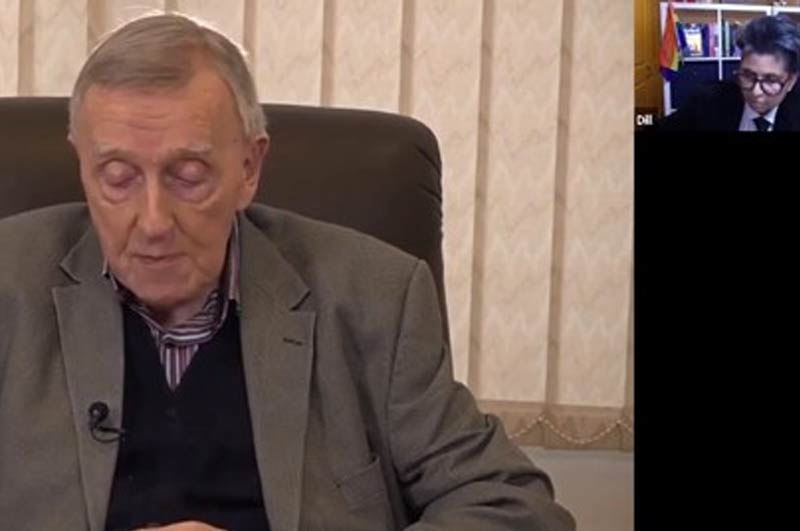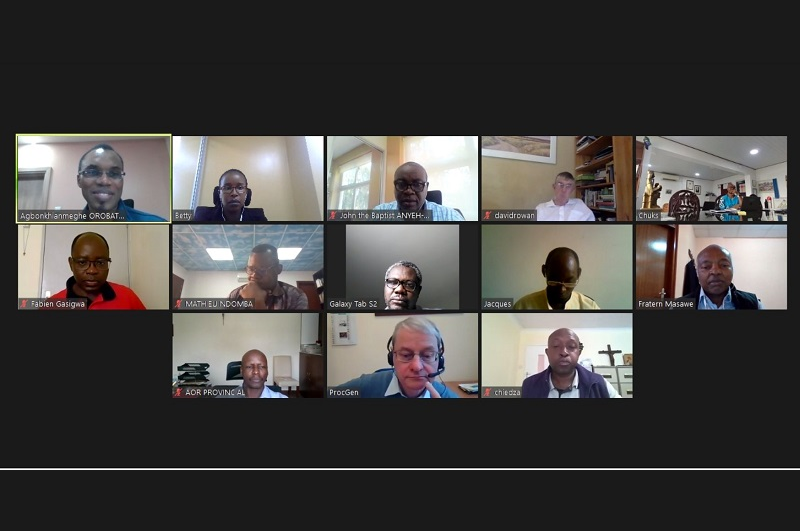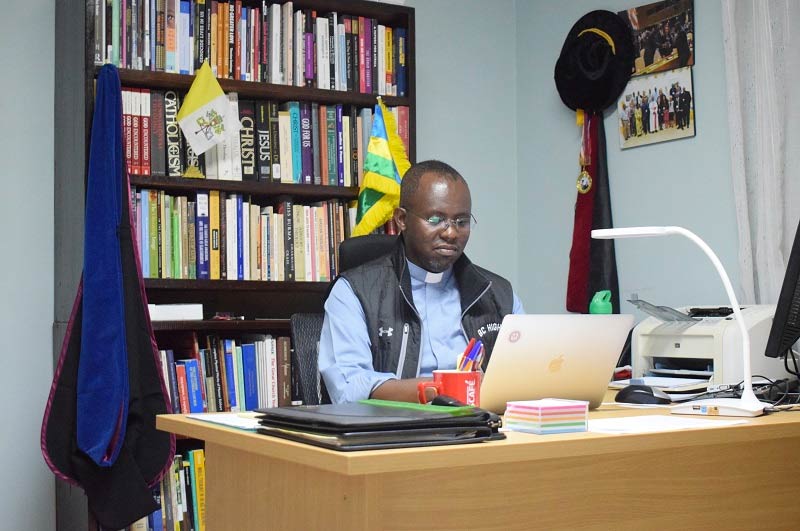


Dr. Marcel Uwineza SJ, from Rwanda-Burundi Region (RWB) reflects on his current mission to Hekima University College, where he is teaching Theology. This interview was done by Thierry Manirambona SJ.
Thierry: How do you feel about being back to Hekima as a lecturer?
Dr. Marcel: The question about feelings can be subjective! However, as I look back, I feel consoled in the Ignatian sense and I am most grateful to God for the journey thus far. I am indebted to Frs. Ganza and Orobator for the mission I have received. I thank both Frs. Karekezi and Ganza who sent me for advanced studies. The latter can be demanding and I am cognizant of several people who cared and asked how I was doing in the ascetical doctoral program and those who joined to celebrate my success at Boston College. It is wonderful to celebrate others! It is a sign of freedom.
I first came to Hekima in 2009 to begin the Bachelor in Theology. Then, I found close companions of RWB, notably Michel Kamanzi, Gerard Kalisa, Egide Ndayisenga, and Bernard Karerwa. I did not, then, take any long flight to Hekima as I was coming from my regency at African Jesuits AIDS Network (AJAN) House, which was about 20 minutes drive. I am now coming back with a Ph.D. It was a long flight from Boston.
I started my new mission at Hekima in August 2020 when all our academic teaching was online. In a sense, I could have taught Hekima students from anywhere in the world. However, what moved me first was to love, live with, and teach young talent Jesuit brothers who, could be doing something else in life, but have heard the call of Jesus and decided to give it a try and they are now Jesuits. Personally, this leaves me deep joy. Being in the midst of energetic young Jesuits from more than twenty countries is a reason to realize that we can’t all be mad! There must be someone bigger than me, who has brought us together, someone inexhaustible, someone to whom we are transcendentally oriented: God. In my occasional moments of doubts, I relish the variety of Jesuits that have been around me with all their qualifications in RWB, at Boston, and now at Hekima. I realize that this feeling is not just an anthropological phenomenon, but a theological one. It also leads me to greater love for SJ.
After eight weeks into the semester, Hekima University College moved from remote/online teaching to in-person teaching. I can now meet my students physically. It is thrilling to stand in some of Hekima classrooms, places where I previously sat as a student and now stand as a lecturer and dean of students. The first physical class brought me some goosebumps. The courses in Christian Anthropology and Eschatology that I am teaching this semester could not have come at a better time. These are 3rd-year courses and my students are engaged, and most of them mature, as they contemplate their forthcoming ordinations. They are a few who seem to be lazy. One faculty member told me: “you will always get some lazy ones!”
The Hekima-RWB group is also committed. We were happy to finally welcome our brother Moses Bahuwimbuye who joins Pascal Bihorubusa in their first year of our program. The two B’s bring new energy and zeal to Hekima. It’s been a great joy to find Fr. Elisée Rutagambwa here and join him as a lecturer. He has smoothed my transition from doctoral studies to fully engaged intellectual apostolate. It is a delight to live in the same house with Thierry Manirambona and he serves as the coordinator of our Ushirika home where I serve as animator/formator. Fr. Gaëtan Gatarayiha is equally busy with his program. You need to walk to see him! I have been working on a book project with two other RWB Jesuits and we are looking forward with hope. It is a great joy to meet Rev. Prof. Laurenti Magesa, no longer as his student, but also as his colleague and a friend.
In short, there are several feelings, but here at Hekima in this new mission, I hear the words of Jeremiah, “The Lord says: ‘I know the plans I have for you, plans for your welfare and not for harm, to give you a future with hope.’” (Jer. 29:11).
Thierry: What makes theology appealing to you?
Dr. Marcel: Theology is a discourse on God rooted in faith seeking understanding, love, and hope. Aware of human limitations, Ludwig Wittgenstein once said “That which you cannot express clearly, keep silent,” before the mystery of the incomprehensible God, we are often left in silence. Yet T.S. Eliot is right, “there are things which we cannot express clearly, yet we cannot keep quiet.” God is, by analogy, like someone or something before whom (which) one has no words and is invited to keep silent; yet one is still compelled to say something. In this line, theological formation still have something to say to different contexts, while knowing that before the inexhaustible reality of God, there is always more.
A story is told of a distinguished theologian that, when addressing new students for the first time, he would enter the lecture hall, proceed to the podium, and begin by saying, “God.” Then he would pause dramatically during the hush while the students waited to find out what he had to say about God. He would then tell the students, “Whatever came into your head when I said the word ‘God,’ is not God.” And that is exactly correct. The first and most important thing to know in theology is that whatever you think of when you hear the word “God” is not God. However deep, however rich, however noble, however powerful, however loving, however scripturally-based or traditionally-sanctioned, whatever the image is, it is not God because God remains mystery. We must take that very seriously. The word “God” functions as a handy bit of shorthand for the absolute mystery which grounds and supports all that exists. I grant you that it becomes awkward to talk about “the absolute mystery that grounds and supports all that exists,” so we just say “God.” The word “God” is a stand-in for absolute mystery. The silence before God is not therefore an expression of incomprehension; rather, it is a sign of reverence. This silence is not to be understood as a red light inviting us to stop; instead, it is like a “continuous blinking yellow traffic light” where one is invited to proceed with caution, reverence, and awe.
While the object of the study of theology is God, theology is inescapably about human experience, language, ideas, and action. These serve as media through which we attempt to engage in a relationship with God. Theology’s task is to uphold that “every human life is a reflection of divinity, and every act of injustice mars and defaces the image of God in [the human person].” Doing theology is an undertaking that requires theologians to be attentive listeners. The opening of ears and hearts allows humanity to perceive the workings of God, to lament when things are not as they should, and to work towards a better world.
Theology is not done in a vacuum. It is done in a context. It deals with questions of human existence. It is at the same time anthropocentric and theocentric. Karl Rahner put it well: “As soon as man is understood as the being who is absolutely transcendent in respect of God, ‘anthropocentricity’ and ‘theocentricity’ in theology are not opposites but strictly one and the same thing, seen from two sides.”
Thierry: How can theological formation help reflect about and respond to the invitation from the universal apostolic preferences (UAP) of the Society of Jesus?
Dr. Uwineza: In a short conversation like this, it would be hard to elaborate on each of the four apostolic preferences. Let me just speak briefly on one, that is on how theological formation can help reflect about and respond to the invitation to care for the poor.
In Luke 10, a lawyer talks with Jesus about how he might inherit eternal life. He knows he must follow the Jewish law – love your neighbor as yourself – and so he asks Jesus, “Who is my neighbor?” In answer to the obvious question, “Why should we act in such a strange and unaccountable way?” One finds a response in Matthew’s Gospel. Jesus responds that we must do so in order to “be children of your Father in heaven who makes the sun shine on the wicked as well as the good and sends rain to fall on the just as well as the unjust” (Mt 5:45). God’s children ought to act like our parent. And that parent makes the sun shine on the good and the wicked, makes the rain fall on the just and the unjust. Notice that Our Father in heaven doesn’t especially care whether you are good or wicked or whether you are just or unjust. Your Father in heaven simply loves you. There are no bounds to God’s love, so do not put any bounds to yours. “Be perfect as your heavenly Father is perfect” (Mt 5:48). You may not love your Father in heaven, but your Father in heaven still loves you. Theology affirms that God has no bias as we do. And as Bernard Lonergan notes, a bias is “a distortion to intellectual development.” Think of the horrible things personal, group, and ethnic biases have led to in our countries. When one has biases, one ceases to grow.
The study of God ought to lead to praxis. While it deals with the incomprehensible love and mystery of God, it invites us to reflect and act as the Good Samaritan (Luke 10:25-37) towards those who are wounded on our “Jerichos’ roads” where so many people have been brutally assaulted. This praxis must not be a favor to them, but because that is how God acts. Recall the story of the prodigal son (Luke 15:11-32). The climax of the story is that final conversation. The older son’s argument is that the father’s behavior is absurd and, what is more, unjust. The father does not dispute the justice of the older son’s complaints; he simply regards them as irrelevant. The father isn’t concerned with justice. The father is concerned with agape, absolute unconditional self-gift. The older son can argue, “Look, he demanded money he had no right to and he lost it. He has never shown the least regard for you or for this family. He doesn’t deserve the party which you are giving him. This is unjust.” And, given the older son’s perspective, he is quite right. The father replies, “But the young man was lost; now he’s found. He was dead; now he’s alive.” What is the obvious response? Have a party.
In the midst of so many people who are left on the roadside, if you find yourself saying, “I simply don’t understand how God can act mercifully, that is standing in our mess, then the discourse on God may be right to insist that you may very well have gotten the point of theology and the Good Samaritan, in particular. Presumably the scribes and the Pharisees who first heard the story could not figure it out either. If you start with the conviction that our primary relationship to God is one of justice, then, Jesus seems to insist, you will certainly misunderstand God. Jesus has given hope that “we are not loved because we are so beautiful and good, but we are beautiful and good because we are loved.” Consequently, theological formation should lead to this unconditional self-gift to our brothers and sisters in need. It must challenge our “power-mentality” to realize, in the words of Jürgen Moltmann, that “We humans have the love of power, but God has the power of love.”
Becoming a human person involves more than conception and birth. Being is entrusted to us as summons, a mission. We are called to love the humanity entrusted to us. This love is concretely manifested in the care of the least among us. Love here is not some emotional feeling. It is an act of willing the good of the other and doing something concrete about it. Since God did not reject or stay aloof from us, but decided to pitch a tent among us in Jesus Christ (Jn 1:14), since God treated us with self-sacrificing love, our relationship with God is thus decided in our encounter with the other. As Johann Baptist Metz notes, one of the non-canonical saying of Jesus is: “A person who ‘sees’ his brother [and sister] sees his God.” This is because love of neighbor “is not something different from love of God, it is merely earthly side of the same coin.”
In the midst of so many people who are poor and are often stripped off their dignity and memory, why are you part of a Christianity that does not often make a difference to our brothers and sisters? What must you do? Theology notes that there is a compelling need for “interruption” or a “sabbatical break”—to use Metz and Jean-Marc Ela respectively—of our old ways of reflection and praxis.
Theological formation must be provocative and interruptive. It must break “through our self-reliance and self-satisfaction, attitudes often purchased at the cost of ignoring the suffering of those who had been left beaten on the side of the road in its march of progress. As Elisée Rutagambwa writes, “remembering them is dangerous, but these dangerous memories are liberating. And they are ultimately sustained by the dangerous memory of Jesus Christ, who died and was raised by the God of the living and the dead. It is a memory that can rise to a great hope, but only if it is put into practice, a ‘combative hope,’ as Pope Francis puts it.’”
Theology challenges us to realize that while it may be good to act like Simon of Cyrene (Mk 15: 21), to help Jesus carry the cross and while it may be wonderful to be a Good Samaritan (Luke 10:25-37), these are not enough. What is lacking in Simon of Cyrene and the Good Samaritan is that they are times when we are called to stand up against injustice and not bow to the earthly authorities and we have to critically assess the root causes that create unsafe conditions on Jericho’s road, that is for people to remain poor and beaten. This is why the resources of the intellectual apostolate of the society remain critical. We can recall that in our wounded nations of Burundi and Rwanda, we count many Christian figures who never questioned the loyalty to the authorities even when it was clear that what they have been asked to do is evil. I am not sure this has changed. Theological formation demands that we perform prophetic signs, that is, as Rutagambwa puts it, it makes an “irruptive demand to break from routinely conducted business and engage with hope in a new age that only God makes possible.” This is practically the Prophet Ezekiel’s experience when he was dragged to the valley of death and watched the lifeless dry bones which pushed him to the brink of total despair, and yet was able to prayerfully trust in God until the bones came back to life (Ezekiel 37).
In his meeting with the woman at the well in Samaria (Jn 4:1-42), Jesus affirms that the “way” he teaches accords no significance to a person’s race or ethnicity or culture or country. The “way” Jesus teaches announces God’s exclusive power and desire to create and name us all as God’s own sons and daughters. This is a short summary of Pope Francis’ Fratelli Tutti. Theological formation demands that we re-consider the “way” of Jesus is, the Way of that includes the Cross and requires that we bring down the poor from their daily crosses. Jon Sobrino notes that theological praxis ought help eradicate the conditions that allow oppressors from benefiting from the poverty of our people. Theological formation challenges us to realize that those of us who gather daily around the table of fellowship with Christ, and yet engage consistently in the works of darkness, defamation, indifference, jealousy, and disrespect of others are meant to see ourselves in the betrayer [Judas].
As I teach theology here at Hekima and serve students as their Dean, I am convinced with God’s help, the Society of Jesus has given us the opportunities to excel. I encourage my students not let them go to waste. There is a lot of mediocrity out in the streets which often translate into mediocre homilies, I encourage them not to join the camp. Depth requires steadfast study.
As a theologian, I am convinced that because of the Incarnation, what you and I and God have in common is that we are all human. To be like God, you must be more human. To be more human, you must help and serve others and give of yourself and your talents. This is how Jesuit education has formed others for nearly 500 years. One of my esteemed theologians, Father Michael Himes, described what he called the “unshakable central” tenet of Jesuit education: “what you hold onto, you lose, what you give away, you never lose. The reason to be educated is to teach someone else. You never grasp the fruits of education until you give it away.” So give it away!
I wish you all a blessed Advent and may you remember the story of Naaman, the Army Commander of the King of Aram (2 King 5: 5-15). He was asked to do something simple (bathe in the river) but pride almost prevent him from receiving back his health. Thank God, Naaman did finally obey. May we continue to adopt preventive measures to be safe and protect others from coronavirus.
Related Articles
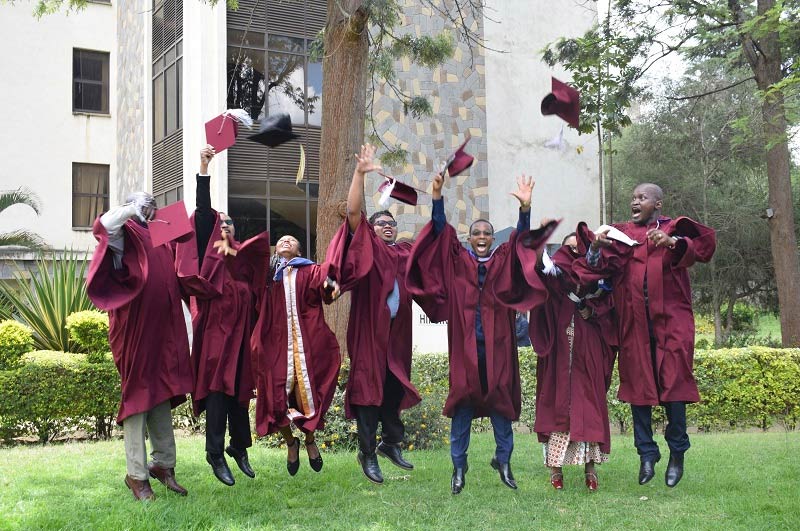

Select Payment Method
Pay by bank transfer
If you wish to make a donation by direct bank transfer please contact Fr Paul Hamill SJ treasurer@jesuits.africa. Fr Paul will get in touch with you about the best method of transfer for you and share account details with you. Donations can be one-off gifts or of any frequency; for example, you might wish to become a regular monthly donor of small amounts; that sort of reliable income can allow for very welcome forward planning in the development of the Society’s works in Africa and Madagascar.
Often it is easier to send a donation to an office within your own country and Fr Paul can advise on how that might be done. In some countries this kind of giving can also be recognised for tax relief and the necessary receipts will be issued.


